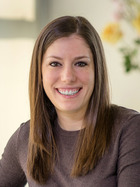Resource Navigation
Learn more about how CancerCare Resource Navigation can help you address barriers to care.
Publications
Read or order our free Connect booklets and fact sheets offering easy-to-read information about the latest cancer treatments, managing side effects and coping with cancer.
For Any Cancer Diagnosis
Financial Assistance
Limited assistance from CancerCare is available to help with cancer-related costs.
Ask CancerCare
Every month, featured experts answer your questions about coping with cancer including specific answers to questions asked by caregivers.
For Any Cancer Diagnosis
- Q.
A teacher asked me (a school social worker) how to help an 8-year-old student with his/her own cancer diagnosis and loss of hair. Any advice?
A.Children who are diagnosed with cancer face unique challenges and adjustments. Parents, teachers and other caretakers often struggle with how to explain cancer and its effects. When speaking with this child’s teacher, you may want to consider the following points.
Children understand simple and clear explanations best. Provide concrete, age-appropriate information when speaking to this student. Explain that there are special medications that they will need to take that will help stop the cancer from growing. These medications may also cause his/her hair to fall out. Some children will want to hear a more detailed scientific explanation while others will be satisfied with more general information. Reassure the child that hair loss is temporary and explore whether he/she would feel most comfortable wearing a hat, scarf or wig in the meantime.
It is common for children to feel an array of feelings when they begin losing their hair including anger, sadness, embarrassment and fear. Let this child know that it is safe to express those feelings to you and his/her teacher. Validate the way they feel and remind him/her that although it is upsetting to deal with these side effects, it means that the treatment is working hard to stop the cancer and make his/her body healthy again. You may also want to preemptively prepare this child for questions his/her classmates may ask and come up with ways the child will feel most comfortable responding. While some children would rather not discuss their diagnosis with classmates, others may be more open with regards to what they are going through. There is more than one right way for the child to interact with their classmates and understanding your student’s specific wishes can inform the way you and the child’s teacher help the child’s classmates support the child with cancer.
You may find the following books helpful when explaining cancer and its side effects:
- Chemo, Craziness & Comfort by Nancy Keene is a book for children between the ages of 6-12 that provides clear explanations about cancer and treatment.
- KidsCope has a free comic book called KemoShark that helps explain cancer and chemotherapy
The American Childhood Cancer Association provides books to families with a child with cancer free of charge.
For more information, support or guidance, call us at 800-813-HOPE (4673) to speak with an oncology social worker.
Specialized Programs
CancerCare offers specialized programs to address specific populations and concerns.
Coping Circle Workshops
Virtual educational and supportive workshops led by oncology social workers and qualified co-facilitators. These workshops cover numerous topics and are offered in English and Spanish.
Additional Resources
Organizations
Children With Hair Loss
HairToStay
Locks of Love
National Wigs for Cancer Society (NWFCS)
The Verma Foundation
Wigs for Kids

 Answered by
Answered by